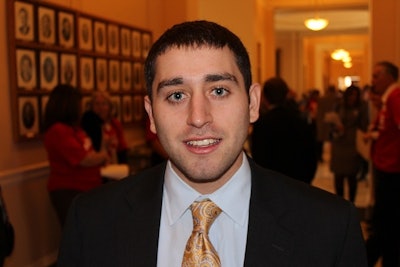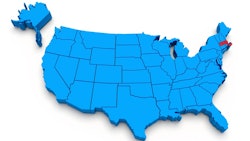
An interview with David Boyer, executive director of the Campaign to Regulate Marijuana Like Alcohol
By Noelle Skodzinski
In mid-July, the Campaign to Regulate Marijuana Like Alcohol in Maine (an initiative of the Marijuana Policy Project (MPP)) announced that it had raised $53,000 in the second quarter of 2015. The group had raised another $51,000 in the first quarter, according to David Boyer, the group's executive director, and it has collected more than 10,000 signatures for the petition to get its proposed “Taxation and Regulation of Marijuana Act” on the 2016 ballot.
I talked with Boyer about the campaign's progress to date and what needs to happen to get the proposed initiative on the ballot for the 2016 elections and passed by voters.
 Noelle Skodzinski, Editor, Cannabis Business Times
Noelle Skodzinski, Editor, Cannabis Business Times
 david boyer_Regulate Maine
david boyer_Regulate Maine
We’re on par with where we need to be to pay for and finish the signature drive. And we will [boost our] in-state fundraising over the next six months, and MPP has pledged more money for TV ads. So we’re set to do this and do it right.
 Noelle Skodzinski, Editor, Cannabis Business Times
Noelle Skodzinski, Editor, Cannabis Business Times
 david boyer_Regulate Maine
david boyer_Regulate Maine
We tried really hard to work with that group. They were pretty uncompromising on even some of the smaller points, like how much an adult can possess. Whereas ours is one ounce, theirs is 2.5 ounces.
We just didn’t see the value in going for me, seeing as all the other states have legalized one ounce. We didn’t want to give the opposition the opportunity to say we’re trying to legalize more than double the amount Colorado legalized, and have them say it’s too much too fast.
We’re at a different place on the East Coast and in New England than the West Coast. We have eight dispensaries compared to the hundreds of dispensaries that were in Colorado before Amendment 64 passed. The polling is tight here in Maine, and we need to be cognizant of that fact.
 Noelle Skodzinski, Editor, Cannabis Business Times
Noelle Skodzinski, Editor, Cannabis Business Times
 david boyer_Regulate Maine
david boyer_Regulate Maine
So at this point I think the campaign is on a good track. I don’t see why it wouldn’t pass next year, when it is a presidential election, and we’ll have lots of young voters, and TV ads and YouTube ads, and lots of different paid media, as well as earned media, to get our message out. So we’re in a good place.
 Noelle Skodzinski, Editor, Cannabis Business Times
Noelle Skodzinski, Editor, Cannabis Business Times
due?
 david boyer_Regulate Maine
david boyer_Regulate Maine
 Noelle Skodzinski, Editor, Cannabis Business Times
Noelle Skodzinski, Editor, Cannabis Business Times
 david boyer_Regulate Maine
david boyer_Regulate Maine
 Noelle Skodzinski, Editor, Cannabis Business Times
Noelle Skodzinski, Editor, Cannabis Business Times
 david boyer_Regulate Maine
david boyer_Regulate Maine
Or they can contribute money to our campaign at RegulateMaine.org—that’s always helpful. You know our budget as an organization (the Marijuana Policy Project) isn’t that much for a single-issue organization that a majority of Americans now support. So the industry has been helpful, but it would be great if they could continue to help out. We want the industry to thrive, and the industry wants to show that they are legitimate business, just as legitimate as the wine maker or brewer. So I think it’s kind of a symbiotic relationship.



























